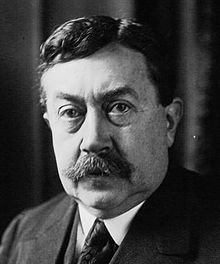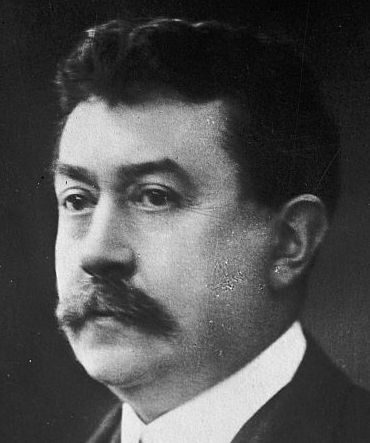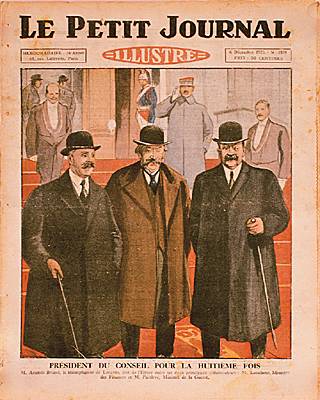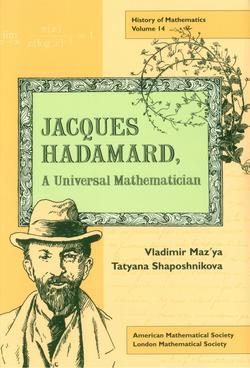Paul Painlevé: A Mathematical Luminary and Political Pioneer
In the confluence of mathematics and politics, few figures shine as brightly as Paul Painlevé. Born into a milieu ripe with intellectual curiosity during the late 19th century, Painlevé embarked on a unique journey that led him to leave an indelible mark on both the academic and political spheres. His contributions transcend disciplines, reflecting a curious and agile mind capable of tackling complex problems with elegance and pragmatic vigor.
Early Life and Academic Ventures
Paul Painlevé was born on December 5, 1863, in Paris, France. His early life was characterized by an insatiable thirst for knowledge, a trait evident in his exceptional academic performances at the Lycée Louis-le-Grand and subsequently at the École Normale Supérieure. From an early age, Painlevé showcased a remarkable aptitude for mathematics, a field that would become his lifetime calling and a basis for his eventual involvement in political affairs.
Painlevé's mathematical pursuits quickly garnered attention. By his mid-twenties, he was engaged in deep theoretical explorations that laid the groundwork for several mathematical principles. His doctoral thesis, "Under the Direction of Hermite and Darboux," submitted in 1887, examined solutions to differential equations. This seminal work heralded the beginning of his esteemed career in academia.
The Painlevé Transcendents
One of Painlevé's most notable mathematical contributions revolves around his work on differential equations, especially his research on what are now known as the Painlevé Transcendents. These are special functions that arise as new transcendental solutions to certain second-order nonlinear ordinary differential equations. Painlevé's astuteness in identifying these solutions during a time when such problems were particularly daunting is testament to his profound insights into mathematical structures and patterns.
Throughout the early 1900s, these transcendents captured the interest of mathematicians worldwide, increasingly seen in various fields like statistical mechanics and quantum gravity. The implications of his work echoed through the years, influencing generations of mathematicians and expanding the horizon of mathematical possibilities.
From the Lecture Hall to the Political Arena
Despite his deep and relentless dedication to mathematics, Painlevé found himself drawn into the political world, perhaps driven by a belief in applying intellectual rigor to societal governance. His transition from the academic sphere to politics was marked by the same tenacity and critical thinking that had characterized his mathematical work.
Painlevé's foray into politics began in earnest when he was elected to the French Chamber of Deputies in 1910. Here, his expertise in aeronautics and passion for science cemented him as an asset in discussions and policy-making, offering unique perspectives that integrated scientific advancement with national interests. During World War I, his role grew more critical, as he was appointed the Minister of Public Instruction, and later, Minister of War.
Leadership During Tumultuous Times
Paul Painlevé's political career reached its apex during the throes of World War I. His leadership style, characterized by a commitment to innovation and intellectual diligence, was particularly evident during his tenure as Prime Minister of France, a position he held twice, first in 1917 and later in 1925.
In a time where Europe was plunged into chaos, Painlevé's approach was methodical and calculated. He worked tirelessly to bolster France's military defenses and advocated for strategic alliances, showcasing his belief in both the efficient organization of national resources and the importance of international cooperation. His spiraled understanding of systems, likely influenced by his mathematical background, proved beneficial in navigating the complex geopolitical landscape of the early 20th century.
Nevertheless, his time as Prime Minister was not without challenges. Political fragmentation and the pervasive unrest of post-war France eventually led to his resignation, though his influence lingered long after he had stepped down.
This intricate tapestry of academia and public service renders Paul Painlevé a singularly fascinating figure within the annals of history. His ability to fluidly transition between realms, coupled with his enduring contributions across sectors, sets apart his legacy. The continuation of this exploration further delves into his post-political influence and enduring impact on education and science, both in France and globally.
Contributions to Aeronautics and Science Advocacy
Paul Painlevé's fascination with the burgeoning field of aeronautics was both intense and enduring. This interest was not merely academic; it was borne out of a genuine belief in the transformative potential of aviation technology. Painlevé, who was among the first passengers to fly in a heavier-than-air machine, recognized early on that aviation would play a pivotal role in both civilian and military arenas. His advocacy for aviation technology was pivotal in his political and scientific career.
As a politician and a scientist, Painlevé championed advancements in aeronautics by emphasizing research and development. He pushed for France to invest heavily in this sector, realizing that aerial supremacy could become a strategic military advantage. His efforts were instrumental in fostering France's early 20th-century dominance in aviation research and innovation, demonstrating his prescience regarding the technological trends that would define modern warfare and transportation.
Moreover, his involvement with scientific institutions, including his presidency of the Academy of Sciences, further highlighted his commitment to advancing science and technology. Painlevé was a proponent of modernizing education and integrating scientific disciplines to encourage a synergy between theoretical research and practical applications. His initiatives helped lay the groundwork for future generations of scientists to innovate within a supportive infrastructure.
Influence on Education and Mathematical Legacy
Beyond politics, Painlevé remained a dedicated educator and mathematician, contributing profoundly to both fields. His mathematical work, particularly his studies on the integration of algebraic functions and differential equations, has continued to influence various branches of mathematical research, including chaos theory and fluid dynamics. Painlevé’s intellectual rigor and analytical skills honed through his mathematical work were mirrored in his advocacy for educational reform.
As an academic leader, Painlevé was passionate about cultivating curiosity and critical thinking among students. He emphasized reforming science education to be more inclusive and comprehensive, underscoring the need for practical, real-world applications of theory. His tenure at illustrious institutions like the Collège de France facilitated the nurturing of young scientists and mathematicians, many of whom would go on to make significant contributions of their own.
Painlevé was also deeply involved in efforts to make scientific education more accessible, promoting initiatives that opened doors for underprivileged students and those from varied backgrounds, thereby democratizing education and expanding opportunities.
Paul Painlevé's Legacy and Cultural Impact
While Painlevé’s most immediate legacy may be his political and scientific contributions, the broader cultural impact of his work speaks to a deeper societal paradigm shift. Through his dual roles, Painlevé showcased the potential harmony between scientific inquiry and public policy, a perspective that reshaped how governments across Europe regarded scientific endeavors during his time.
His work suggested that the boundary between science and politics is not merely porous, but that these domains are complementary and mutually reinforcing. Painlevé’s advocacy for science as a tool for public good has inspired countless leaders to integrate scientific expertise into policy-making frameworks, underscoring the relevance of intellectual rigor and evidence-based decision-making in governance.
Painlevé's legacy also perpetuates through the myriad of scholarly articles, treatises, and lectures he left behind. These works continue to inspire and challenge modern scholars, offering insights into the mathematical and philosophical underpinnings of his time. Notably, Painlevé's approach established an intellectual heritage that encouraged multidisciplinary engagement, planting the seeds for collaboration between diverse fields such as mathematics, physics, and engineering.
Beyond Mathematics and Politics: A Humanitarian at Heart
Despite his mathematical prowess and political achievements, Painlevé never lost sight of humanitarian values. His commitment to the public good went beyond his professional endeavors, as he believed in the power of education and technology to elevate societies and improve the human condition. His vision of a world where knowledge was accessible to all, and used for the betterment of humanity, continues to resonate with modern thinkers and policymakers.
Painlevé's multifaceted contributions serve as a reminder of the potential impacts of interdisciplinary expertise in addressing complex global challenges. His legacy is a beacon for future generations, pointing to the fusion of technical knowledge and empathetic leadership as a pathway to sustainable progress.
In our next exploration of Paul Painlevé's life, we will delve further into his personal philosophies and explore how his multifarious experiences in academia and politics have charted a course for the modern era’s approach to science and governance. His nuanced understanding of the world provides an essential lesson in harnessing the intellectual tools available to us to craft innovative solutions for an ever-evolving landscape.
Personal Philosophies and Vision
Paul Painlevé’s impressive career in mathematics and politics was deeply rooted in his personal philosophies, which were characterized by a profound respect for knowledge and an unwavering commitment to progress. His belief in the capability of science and mathematics to propel societies forward informed much of his work and leadership style. To Painlevé, knowledge was not merely a means to an end but a fundamental pillar upon which society could build a foundation of equity and betterment.
Painlevé approached problems with analytical precision and a visionary mindset that always looked toward the next horizon. His dedication to understanding complex phenomena through simplistic yet profound principles underscored his endeavors across disciplines. This ethos epitomized his work as both a mathematician who derived elegance from complexity and a politician who sought to synthesize theoretical concepts with practical governance.
Shaping Modern Science-Policy Interface
Throughout his multifaceted career, Painlevé illustrated how scientific knowledge could be seamlessly applied to policy challenges. By intricately linking science with statecraft, he forged pathways for creating strategic policies grounded in empirical evidence. In contemporary debates about integrating scientific inquiry within legislative frameworks, Painlevé’s approach serves as a paradigm model for effectively balancing expert advice with public concerns.
His achievements in racing theoretical physics against political exigencies resonate within today’s policy environments, where governments are increasingly harnessing scientific insights to craft more nuanced, effective regulations. Painlevé's legacy thus extends beyond his time, informing contemporary science-policy interfaces and highlighting the benefits of such interdisciplinary symbiosis.
Painlevé's work underscores a critical understanding: that innovation does not occur within ivory towers but through continuous dialogue between disparate spheres. This foresight revolutionized how political entities collaborate with scientific establishments, establishing norms that remain relevant in global negotiation tables addressing issues like climate change, health policy, and technological advancement.
Continuing Impact and Reverberations
The impact of Paul Painlevé's work continues to resonate within academic circles and beyond, prompted by his contributions’ duality in substance and scope. His mathematical explorations have influenced disciplines whose reach extend into the digital age, informing technological innovations such as computer algorithms and complex systems theory. Modern engineers and computer scientists owe much to the groundwork Painlevé laid in exploring the intricate dance of variables within mathematical expressions.
Furthermore, Painlevé’s historical insights and proactive policies have left lasting social impressions. France's educational systems and research infrastructures often credit his transformative visions, integrating his ideas into today's academic curricula aimed at fostering analytic acuity from K-12 to higher educational endeavours. This commitment to fostering intellectual curiosity among students mirrors Painlevé's legacy of hope for a knowledge-driven world.
The ongoing relevance of Painlevé's studies echoes through myriad scholarly contributions which continue dissecting and building upon his theories, silhouetting pathways into emerging vistas in science. His foresight into multidisciplinary problem-solving offers pragmatic lessons on adapting to evolving challenges, thus remaining an implicit guide for researchers traversing the corridors of mathematic inquiry and beyond.
Concluding Thoughts on a Remarkable Journey
In the vast landscape of innovators who have shaped humanity’s narrative, Paul Painlevé’s journey stands out as particularly singular. By navigating the intricate web connecting mathematical insights with public governance, Painlevé blended logic with empathy—a rare fusion characterizing truly remarkable leaders. His intricate understanding of celestial problems was matched only by his commitment to tangible earthly solutions that bridged dynamics across spectrums.
As history reflects upon Painlevé's accomplishments, his integration of academic precision into pragmatic applications offers a template for aspiring visionaries. Through every theorem he postulated and every policy he championed, Painlevé emboldened a philosophy of unity—championing robust intellectual dialogues across domains in pursuit of collective advancement.
Paul Painlevé's life resonates as a testament to the indomitable spirit of inquiry and the noble quest to leverage understanding for societal progression. His lessons, encoded within narrative lines both past and contemporary, encourage perpetually seeking, learning, and, ultimately, creating—illuminating pathways of inquiry for present and future generations charged with nurturing knowledge enveloping hopes towards enriched horizons.














Comments